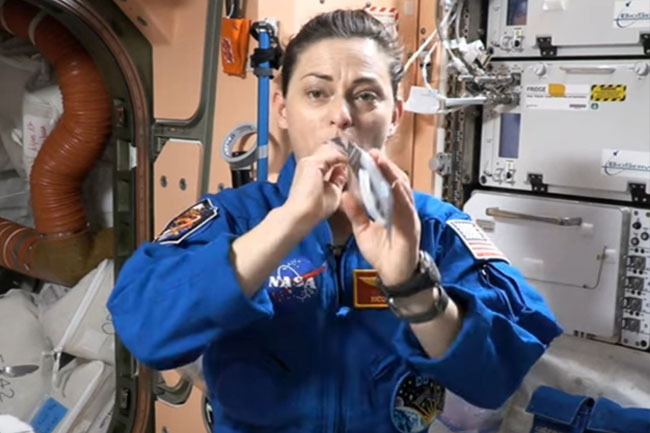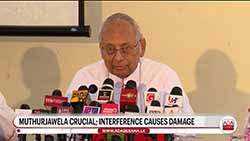Nasa recovers 98% water from urine and sweat on ISS; breakthrough to help in long space missions
June 27, 2023 04:21 pm
In a major breakthrough, astronauts on board the International Space Station (ISS) have attained a 98% water restoration rate using an advanced system that recycles astronauts’ urine and sweat into drinkable water. The development holds immense potential for future long interplanetary missions.
The breakthrough was made possible using the subsystems that are part of the Environment Control and Life Support Systems (ECLSS), which is aimed at recycling consumables such as food, air and water for further use in space. Life support systems ideally need to recover close to 98% of the water that crew members bring along at the start of a long journey, Nasa said. This is because each crew member aboard ISS needs around a gallon of water each day for drinking, food preparation and hygiene usage. The space station’s ECLSS recently demonstrated that it can achieve that significant goal.
Christopher Brown, who is part of the team at Johnson Space Center that manages life support systems on the ISS, said, “This is a very important step forward in the evolution of life support systems. Let’s say you launch with 100 pounds of water. You lose two pounds of that, and the other 98% just keeps going around and around. Keeping that running is a pretty awesome achievement.”
ECLSS is a combination of hardware that includes a water recovery system. This system collects wastewater and sends it to the water processor assembly (WPA), which produces drinkable water. One specialised component uses advanced dehumidifiers to capture moisture released into the cabin air from crew breath and sweat. Another subsystem, the Urine Processor Assembly (UPA) recovers water from urine using vacuum distillation.
A previous technology demonstration on the ISS tested improvements to the UPA’s distillation assembly. Distillation produces water and a urine brine that still contains some reclaimable water. A Brine Processor Assembly (BPA) developed to extract this remaining wastewater has been on the space station as a demonstration of its operation in microgravity. Recent assessments found that the BPA helped the system achieve the 98% water recovery goal, Nasa said.
“Before the BPA, our total water recovery was between 93% and 94% overall. We have now demonstrated that we can reach a total water recovery of 98%,” said ECLSS water subsystems manager Jill Williamson.
The 98% milestone is a significant development for future space missions that will see astronauts spend more time in space during long stays on the lunar surface and crewed missions to Mars. “The regenerative ECLSS systems become ever more important as we go beyond low Earth orbit. The inability to resupply during exploration means we need to be able to reclaim all the resources the crew needs on these missions,” Williamson said.
Source - Times of India
-Agencies











